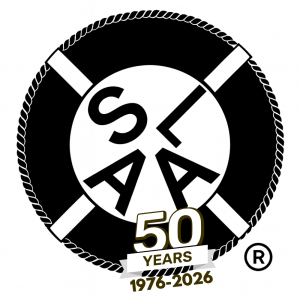The Question:
I’ve been in SLAA for 26 years and still attend my home group – which is a step, discussion
meeting. Every time we read Step 4 one sentence slaps me and has since the first time I heard it. One word change would shift everything. I think it was written in a time where sensitivity was different, and I expect that my experiences growing up were not common. But I know I wasn’t alone and because of my experiences, it is extremely uncomfortable to hear one phrase, and it may be for others as well.
On page 80 of the big book, in the third sentence of the first paragraph, it says, “We gave ourselves away to blondes…” and continues. That, without meaning to I would guess, created a class of people – blondes, like the “successful people” that follow in that sentence. I was 14 years old when the hair coloring ads hit TV with their tagline, “Is it true blondes have more fun?” I was a natural platinum blonde and had to come up with an answer to that question before I was old enough to know what they were really asking me. But how I was treated is only part of the real issue here, though.
By creating “blondes” as a class, you set up this possibility… exchange that word for any other class word and see if you would have left it in the book. Blacks. Hispanics. Asians. Fill in the blank with any you choose and it still gets ugly. I guess tall, or short might work, but what about thin, or fat. Do you see what I am getting at?
It doesn’t fly. It has felt abusive to me from the first time I read it. Is there some way this can be written to get the idea across without using a “class” word to make it work?
I have taken far too many hostages in my years of acting out, had far too many men throw themselves at my feet because I was blonde. Must we perpetuate this in the groundbreaking #1 book on healing sex and love addiction? I would still be out there if it wasn’t for this program and this book, but I hate this sentence. It is abusive.
Thank you for bringing sobriety into my world.
Response #1:
My personal view of our Basic Text is that there are many problems in it. For me even the writing style leaves much to be desired. While I am grateful that the Basic Text was published early, it has now — in my opinion — outlived it’s usefulness. Most of my friends in the Fellowship disagree with me, but I stand by my opinion.
So, a rewrite is needed. And that rewrite needs to cover more deficiencies than the one that singles out blondes.
I am certain that a reprint to correct one sentence is fiscally impractical. However, I understand there is a project to rewrite the entire book. This correction — removing the insensitive, abusive classification of blondes — should be part of that rewrite. Unfortunately, the timeline for a rewrite is long.
Response #2:
I understand why you feel that way about the use of the term “blonde”. As someone who is part Native American, I often have a similar emotional response to the use of Indian names and words in ways that seems derogatory or belittling. So, I personally agree that the wording in Step 4 of the Basic Text should be changed. But, as a member of the CSTCC, my response is that this is an editing issue, and not something that the 12 Steps, 12 Traditions, or 12 Concepts address.
The Board has recently circulated the idea of a 50th anniversary edition of the Basic Text, and it could include a substantial re-write. I have not checked recently, but they were seeking input on the idea from the fellowship at the last ABM. I recommend contacting the FWS and letting them know that you support updating the Basic Text, and that this section should be included in the re-write.


